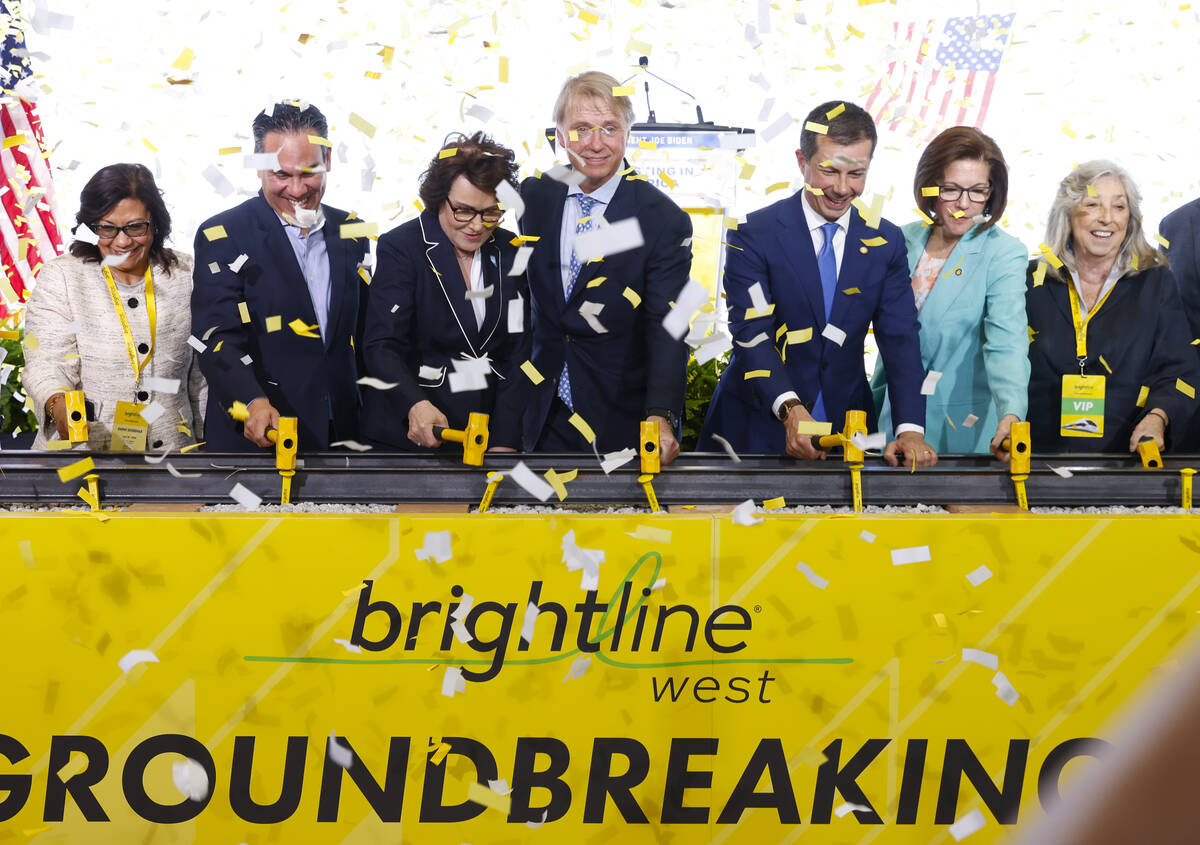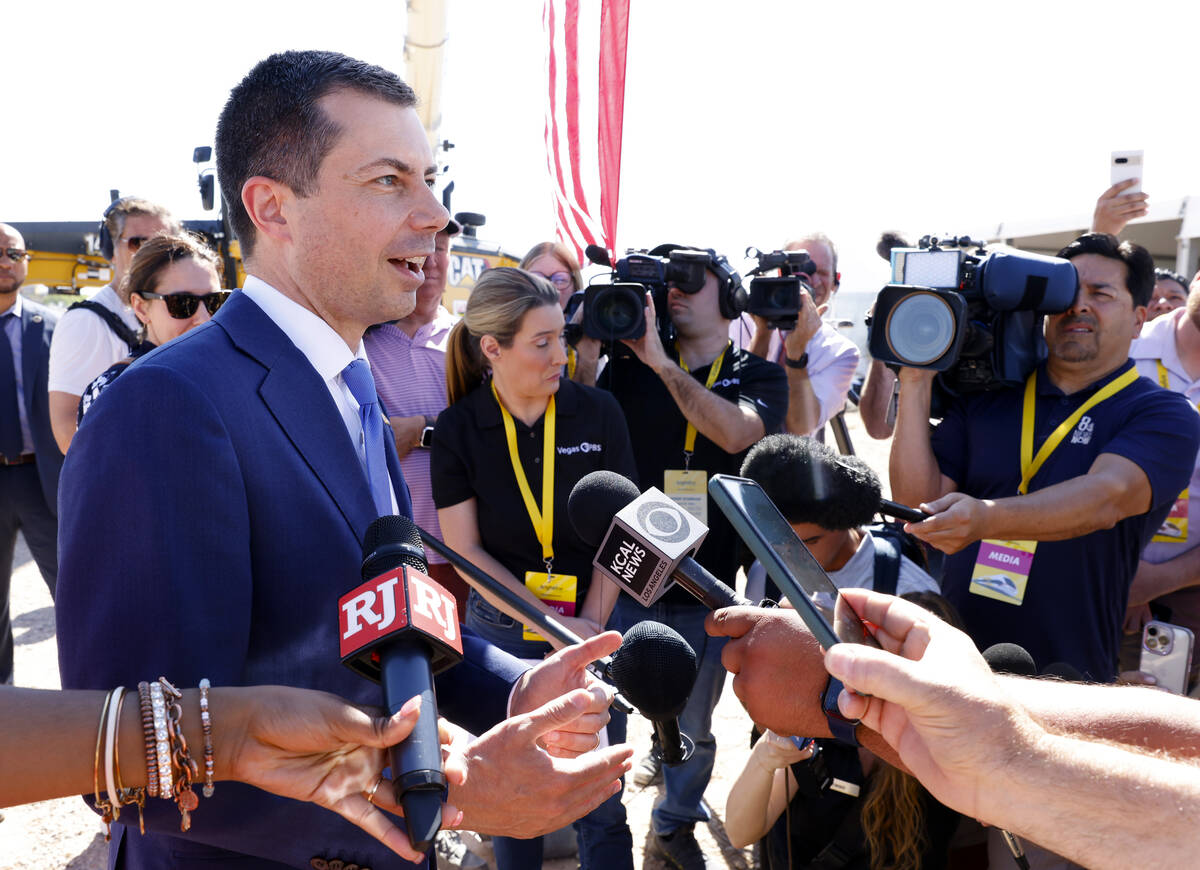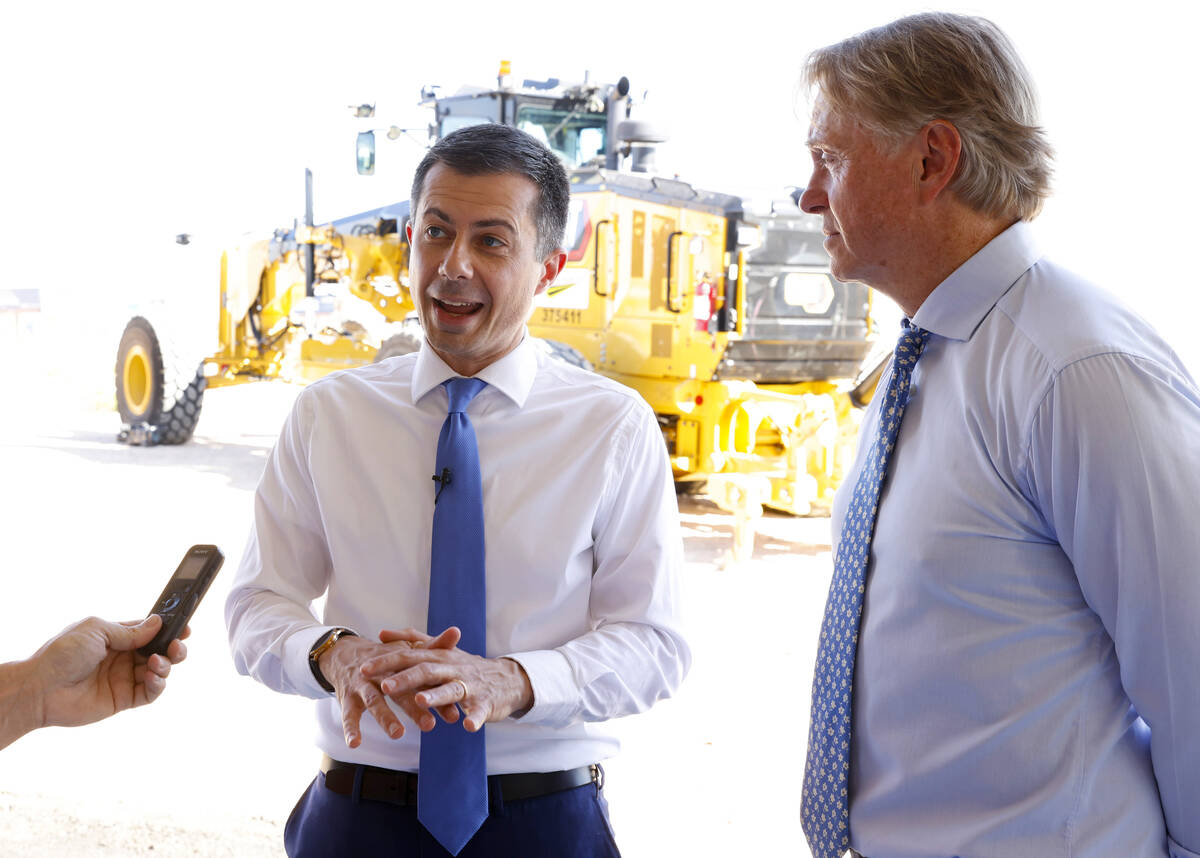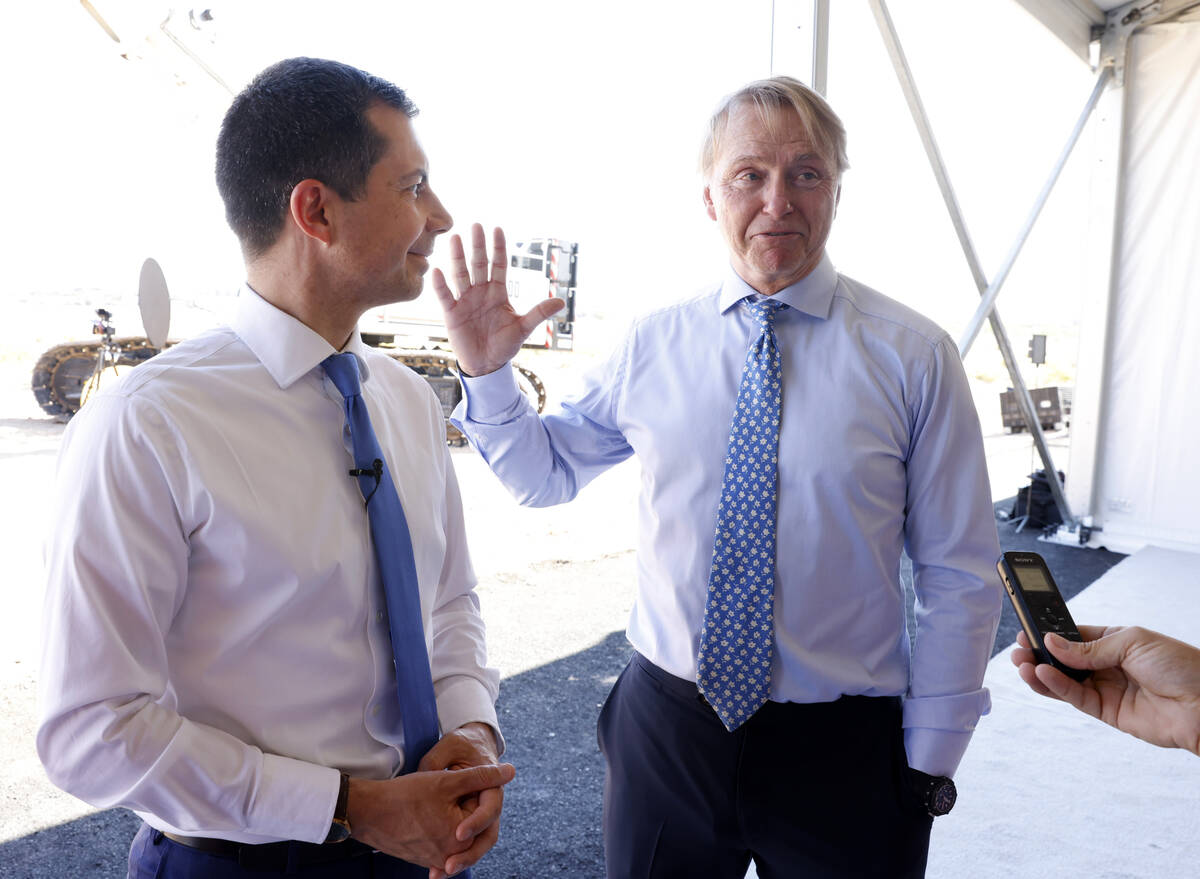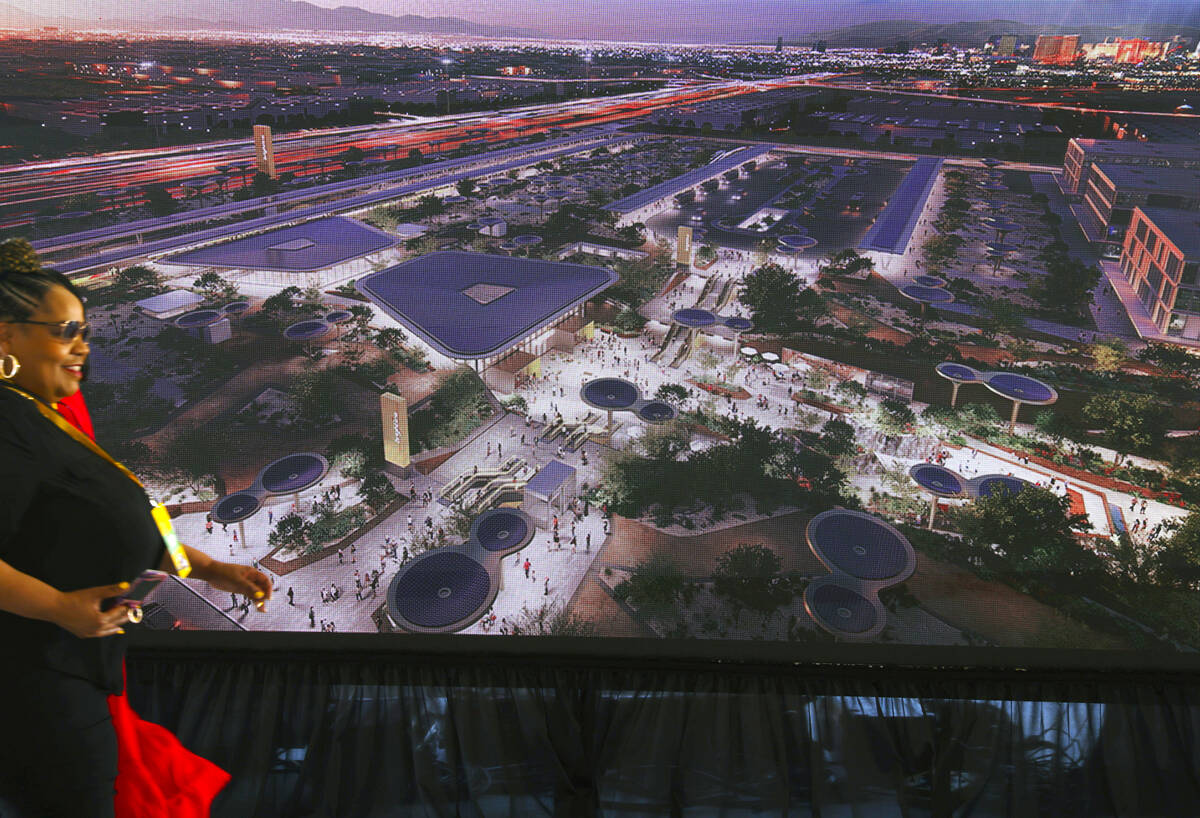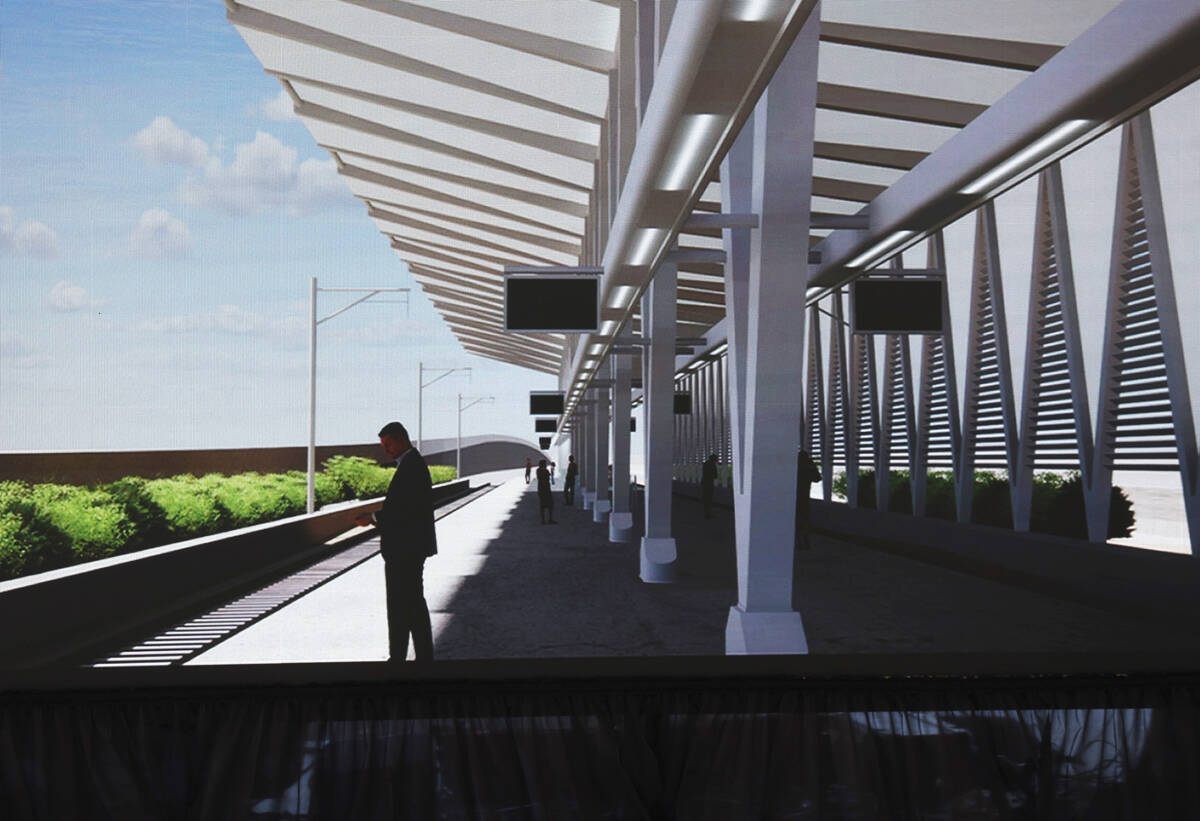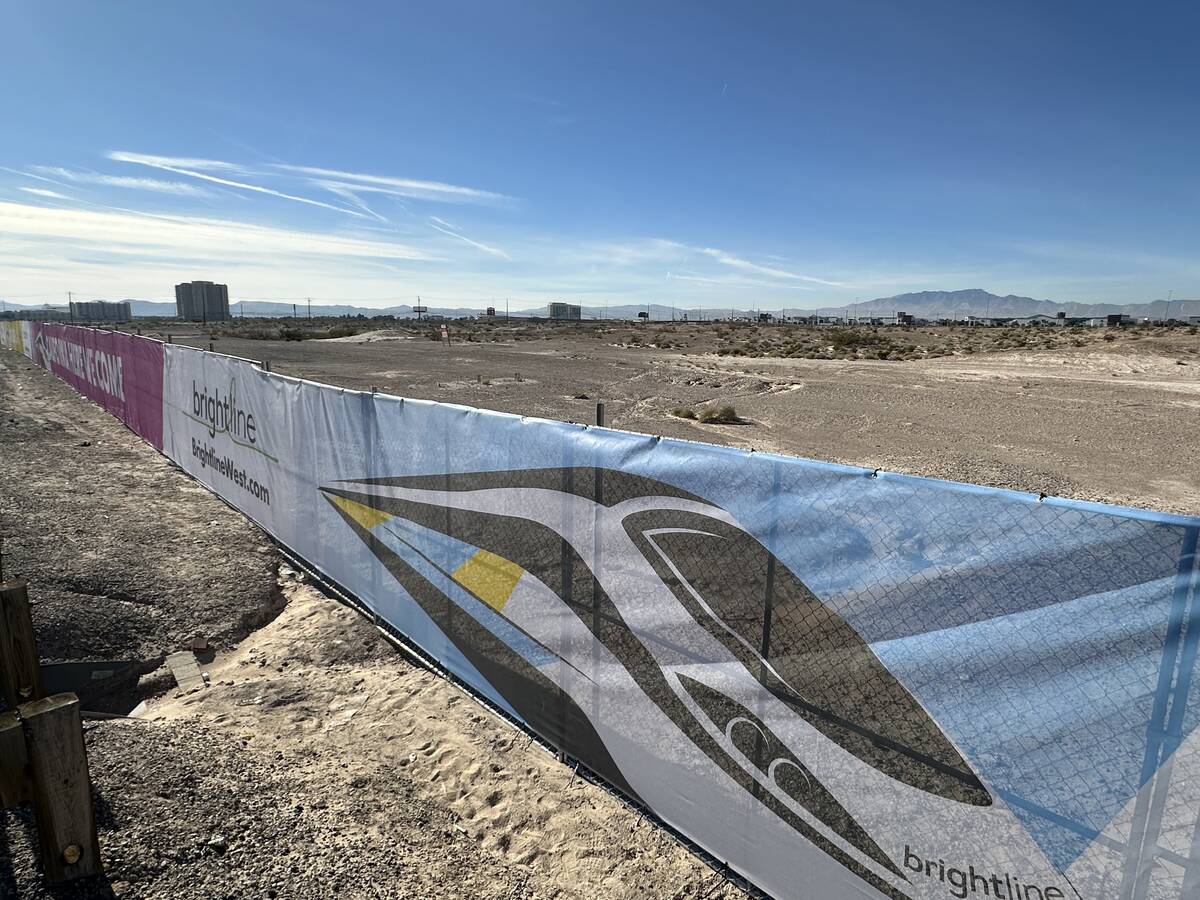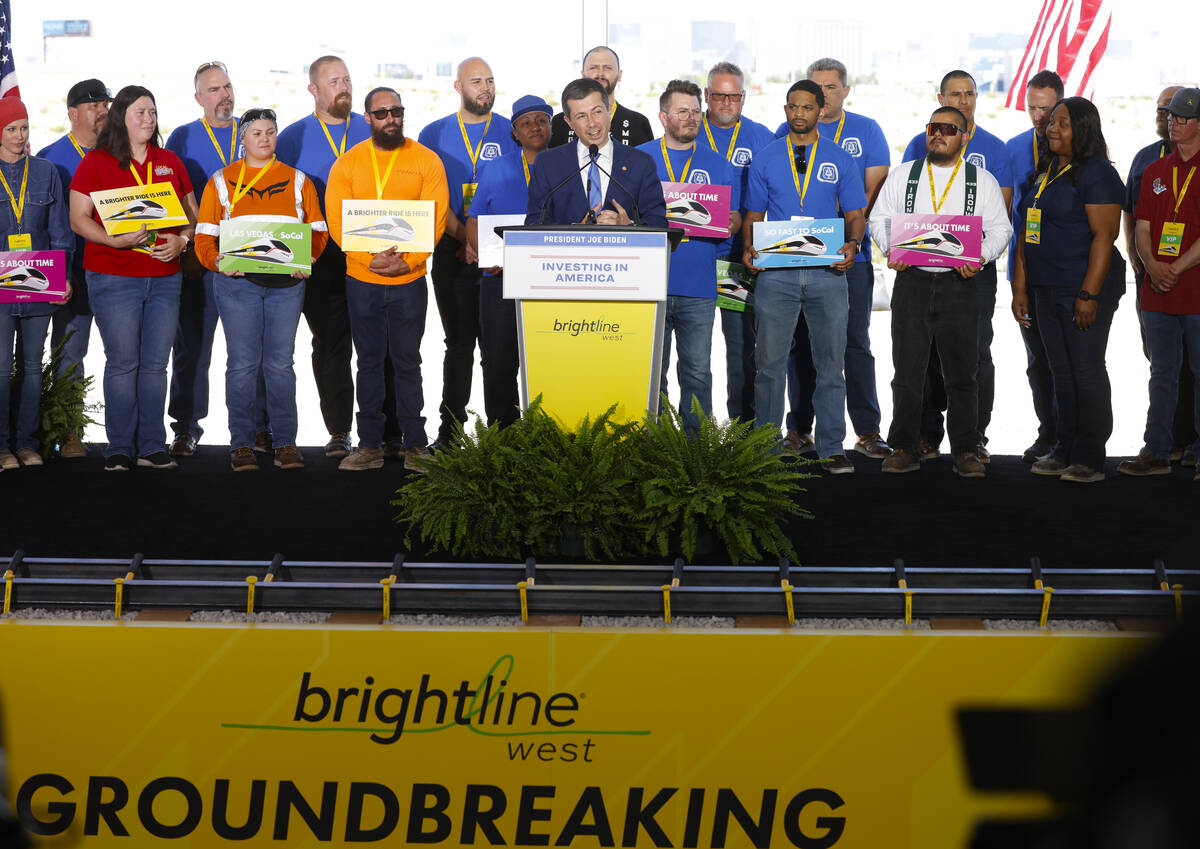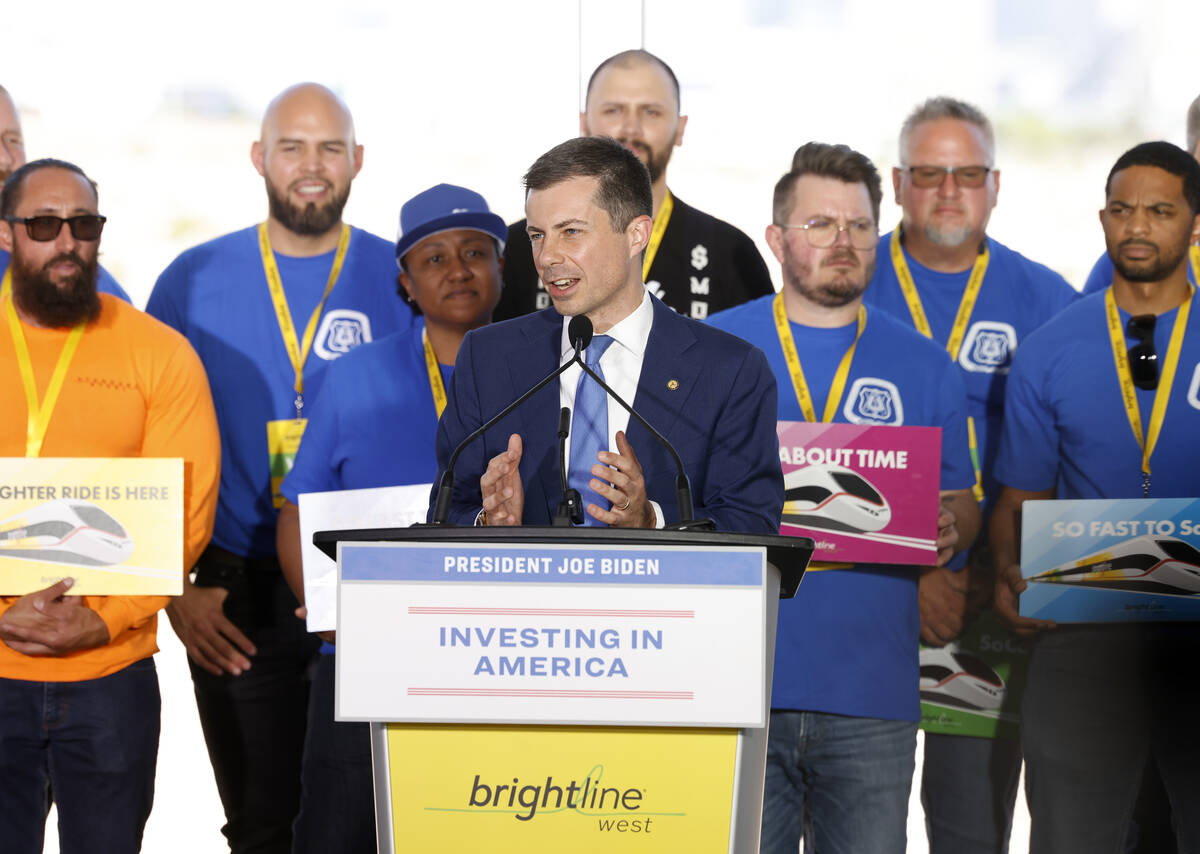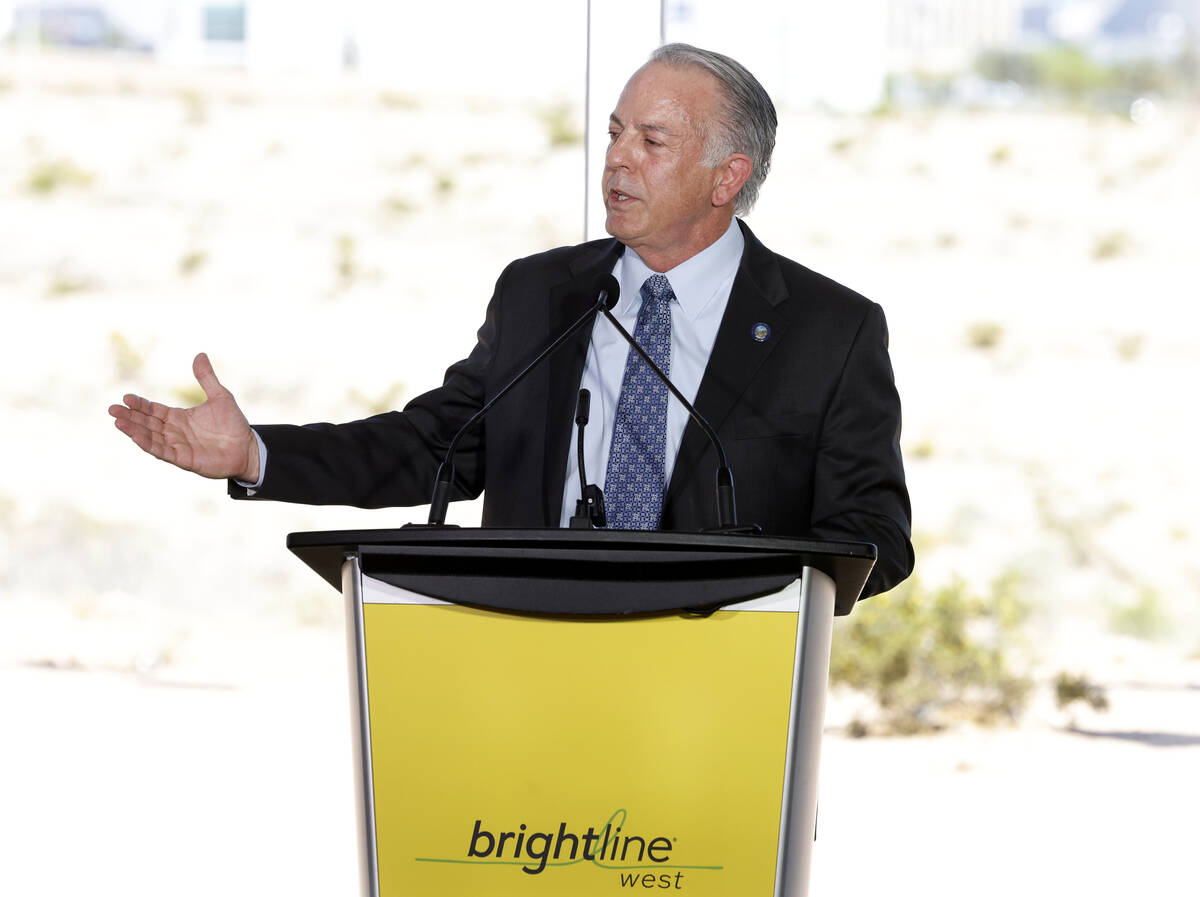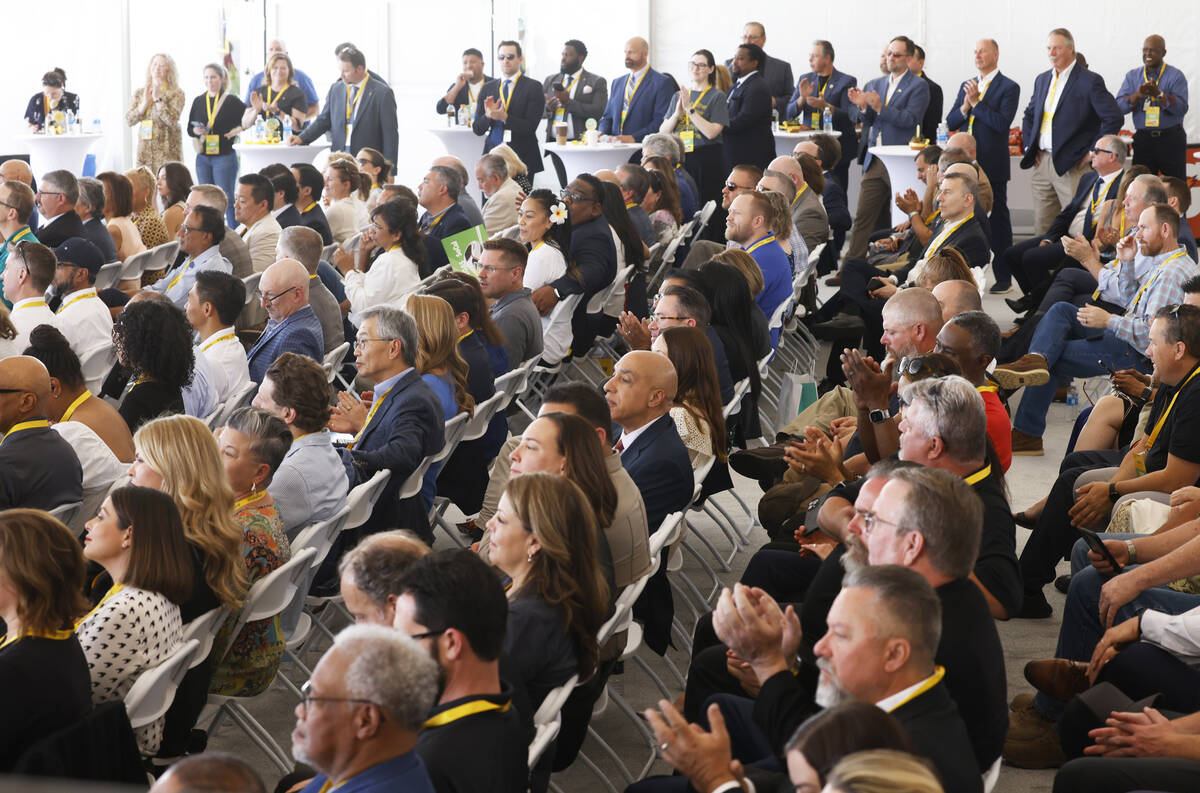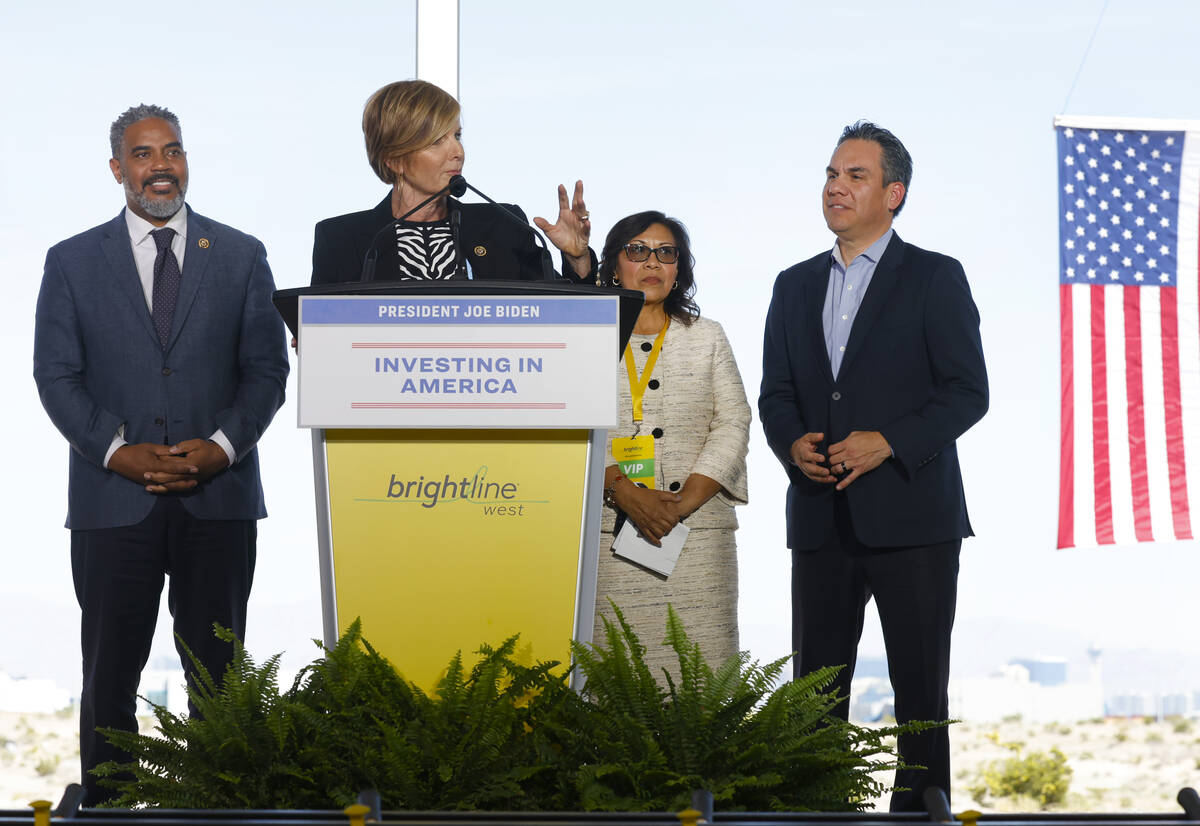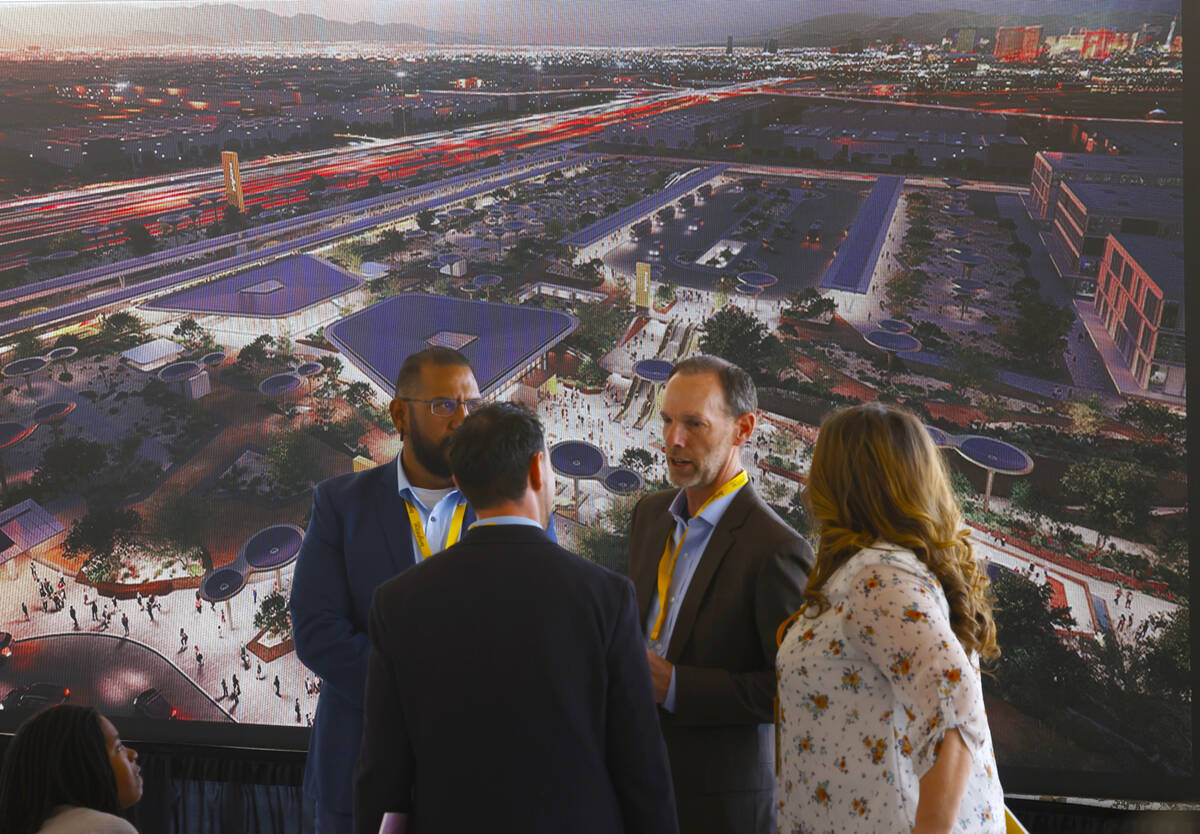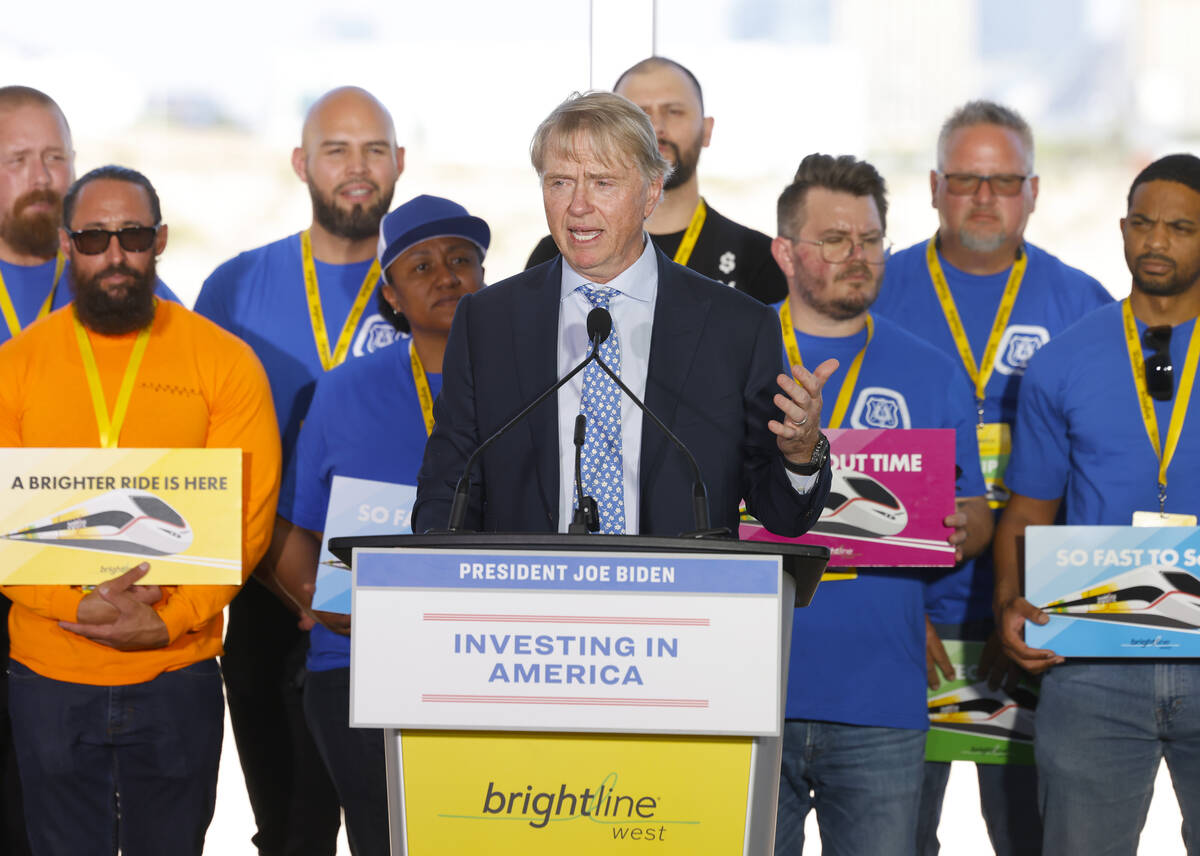A ‘historical moment’: Brightline West starts work on Vegas-to-LA high-speed rail
Brightline West broke ground Monday on its Las Vegas-to-Southern California high-speed train project with high hopes the $12 billion project will write a new chapter in the history of American rail.
“I’m convinced that the first time that first passenger buys a ticket and sits in a seat on that first high-speed trip on American soil, everything will change,” U.S. Department of Transportation Secretary Pete Buttigieg told the Las Vegas Review-Journal. “The entire country will expect and demand that kind of quality and speed of service.”
Buttigieg was joined at the groundbreaking by Brightline founder Wes Edens — who dubbed the groundbreaking a “historical moment” — as well as Gov. Joe Lombardo and state and federal officials from Nevada and California.
The tourism and transportation benefits of the 218-mile rail line, which will be built in the median of Interstate 15, weren’t enough to get the project to the groundbreaking ceremony. The thousands of jobs expected to be created between the construction and the operation of the system gave it that final push, Lombardo said.
“Obviously, we are here because of the economic impact and the tourism and what it’s going to do for our economy. But more importantly, we’re saving lives as part of the process, and we’re putting people to work,” Lombardo said. “Through this visionary project and public-private partnership, we’re going to create thousands of jobs … bring incredible transportation infrastructure to the West and create an innovative, fast and sustainable transportation solution.”
Buttigieg said he’s been asked by many Americans who have traveled abroad why high-speed rail and other transportation options popular in other countries haven’t made it to the United States.
“There’s a lot of reasons why that’s been the case historically, but that ends starting today,” Buttigieg said. “What we are doing in partnership with Brightline is changing the story of American passenger rail.”
Construction
The construction timeline is about four years, with plans to have the system up and running before the 2028 Olympic Games in Los Angeles, Edens said. Brightline has a staff of about 70 people who have been coordinating Brightline’s Florida line and the Brightline West line, Edens said.
“It sounds like a very aggressive schedule, but it’s something that we’ve spent a tremendous amount of time on,” Edens told the Review-Journal. “We took the segment between Las Vegas and Los Angeles and broke it into (smaller) segments. So, we’ll actually start all of those simultaneously. It’s not like the old days, where you start on one end and go to the other end and meet up at the rail station.”
Notable material construction on the project will likely begin later this summer or early fall, Edens said.
Until then, Brightline will hire personnel and get things up and running, Edens said: “Within six months, it will be a full-on construction site from end to end.”
The project was recently awarded $3 billion from President Joe Biden’s bipartisan infrastructure bill and received $3.5 billion in private activity bonds from the U.S. Department of Transportation. The rest of the project’s cost will be privately funded.
During construction, 700,000 concrete rail ties, 2.2 million tons of ballast and 63,000 tons of American steel rail will be used. Powering the electric trains will be 322 miles of overhead lines. The massive project will involve more than 160 structures, including viaducts and bridges, and will be fully compliant with Buy America, which established the preference for infrastructure projects receiving federal funding to use American-made materials.
Stations, facilities
Plans call for the line to have stations in Las Vegas and in Victor Valley, Hesperia and Rancho Cucamonga in California. Riders will be able to transfer to and from Los Angeles in Rancho Cucamonga via the Metrolink.
The Las Vegas station is planned for 110 acres along Las Vegas Boulevard near Blue Diamond Road, southeast of the Interstates 15 and 215 interchange. The 80,000-square-foot station will feature a parking garage and will be within a short distance of Harry Reid International Airport, Allegiant Stadium, the Strip and Las Vegas Convention Center. The station will only take up about 20 acres; the remaining acreage will be filled with commercial development, Edens said.
“The site we’re on now (Las Vegas station site) is really incredible, and I would encourage people to take a picture of this because it won’t look anything like this in four years,” Edens said. “You’ll see millions of square feet of development here. … It could be casinos, apartments, office buildings; a whole host of things could really happen here.”
Brightline also plans to construct a 200,000-square-foot vehicle maintenance facility in Sloan. It will be one of two centers for maintenance and the line’s operational control center. Brightline estimates more than 100 permanent employees will work on a daily basis at the Nevada facility.
The Victor Valley station will be built on 300 acres southeast of Dale Evans Parkway and the Interstate 15 interchange. The 20,000-square-foot facility is aimed to be the anchor for future connections to the High Desert Corridor and California High Speed Rail. A second maintenance facility is planned next to the station.
A station in Hesperia will be built within the median of I-15 and will mainly be used for local rail service for residents in the High Desert for choice morning southbound and northbound evening weekday trains.
The 80,000-square-foot Rancho Cucamonga station will be built on 5 acres on the northwest corner of Milliken Avenue and Azusa Court, north of Ontario International Airport. It will be co-located with existing multimodal transportation options including Metrolink for access into Los Angeles and other destinations including Orange, San Bernardino and Riverside counties.
“The one thing we know is that commercial activity at a train site is a sure thing,” Edens said. “People like to live and work next to the place where they can travel. We’ve seen it happen in spades for us in Florida, and I think we’ll see it happen here.”
Brightline Florida
A major reason the federal government was so willing to commit such a large investment in the Brightline West project was the company’s success in Florida, where Brightline offers intercity passenger rail with multiple stations between Miami and Orlando, with future expansion planned.
“This investment decision was not made lightly; $3 billion out of a very competitive program,” Buttigieg said. “What we saw in this Brightline West project was a partner we knew had delivered in a specific, real world context. A plan for how to put this thing together and creative solutions to a lot of the problems that have really dogged these kinds of projects in the past. And a readiness on the part of the Nevada DOT and other project partners to bring this to reality.”
Brightline’s operations in Florida were a proving ground for the company, but Edens said the company wouldn’t do much differently if they knew what they do now after a few years of operations.
“We probably would’ve bought more land in Florida,” Edens said. “If you took a before picture when we started that train in south Florida to today, it’s probably 10 million square feet of space. … Obviously, we upsized that (in Las Vegas) and bought a bigger parcel, which we think is more addressable and appropriate here.”
When 2028 rolls around and the first trains are taking passengers between Southern Nevada and Southern California, it could lead to the dawn of a new era in transportation in America, Buttigieg said.
“This is something that we really believe in,” he said.
Contact Mick Akers at makers@reviewjournal.com or 702-387-2920. Follow @mickakers on X.
RELATED
Brightline West plans to be a player in Vegas' pro sports transportation game plan
LV-to-LA rail project: What you need to know
Before the LV-to LA rail project, maglev was planned



